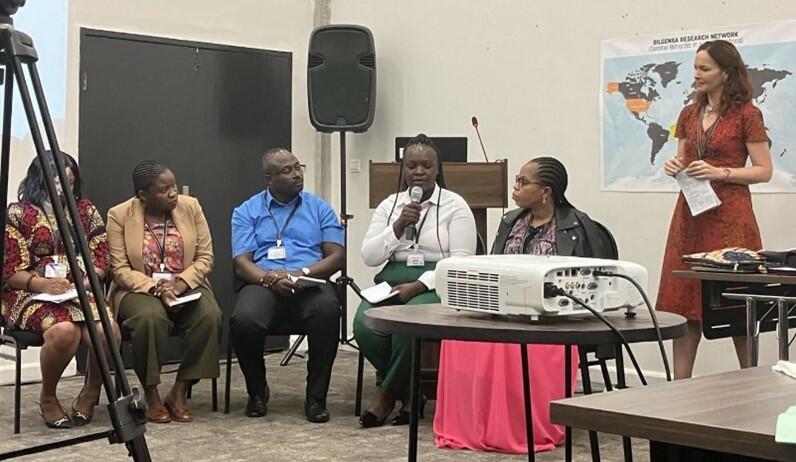
Dr Sekeleghe Kayuni, Mr. Peter Makaula and Prof Russell Stothard from the Malawi-UK HUGS team joined with researchers from Kamuzu University of Health Sciences (KUHeS) to facilitate discussions and exchange of ideas with fellow researchers interested in urogenital schistosomiasis. The Bilgensa meeting was sponsored by the London School of Hygiene and Tropical Medicine and tool place in Lusaka, Zambia from 9th to 11th November 2022.
Bilbensa was a first-ever scientific meeting which drew medical professionals and research scientists working on genital schistosomiasis from Malawi, Mozambique, Nigeria, Madagascar, Zimbabwe, South Africa, United Kingdom, Netherlands and several allied hosts from within Zambia. Professor Amaya Bustinduy and colleagues from Zambart excellently coordinated the workshop, using their expertise of community control of HIV in Zambia as an underlying platform to highlight cross talk of urogenital schistosomiasis with other important communicable disease control.
At Bilgensa, participants shared experiences on previous, current and on-going research on genital schistosomiasis within their countries. They aired in detail the country-specific challenges encountered and potential solutions within reach. Thereafter, participants had group discussions on the prospective research areas in the areas of male and female genital schistosomiasis (MGS and FGS). During the workshop, Seke made a presentation on “Genital Schistosomiasis in Malawi – experiences” which highlighted the recent longitudinal MGS cohort study among fishermen along south Lake Malawi in Mangochi. He also presented upon FGS sub-study findings in Chikwawa and Nsanje as collected under the MORBID study. He further elaborated on the prospective MGS and FGS sub-study soon to take place within the HUGS study follow-up. This will be the first to incriminate whether or not hybrid schistosomes can be implicated in genital tract disease of either gender.
Participants further discussed on morbidity resulting from other co-infections like Human Papilloma Virus (HPV) and Human Immunodeficiency Virus (HIV) infections which has significant impact on health of people in endemic areas. At the end of the meeting, Prof Stothard made a site visit to Kafue to train Bilgensa participants in snail collection and identification methods. In the spirit of collaboration and exchange, participant agreed to communicate more closely together to develop increased momentum moving forward. A policy-led discussion paper is soon to be produced as a formal output from this workshop, defining a new disease-specific agenda for the next decade and beyond.